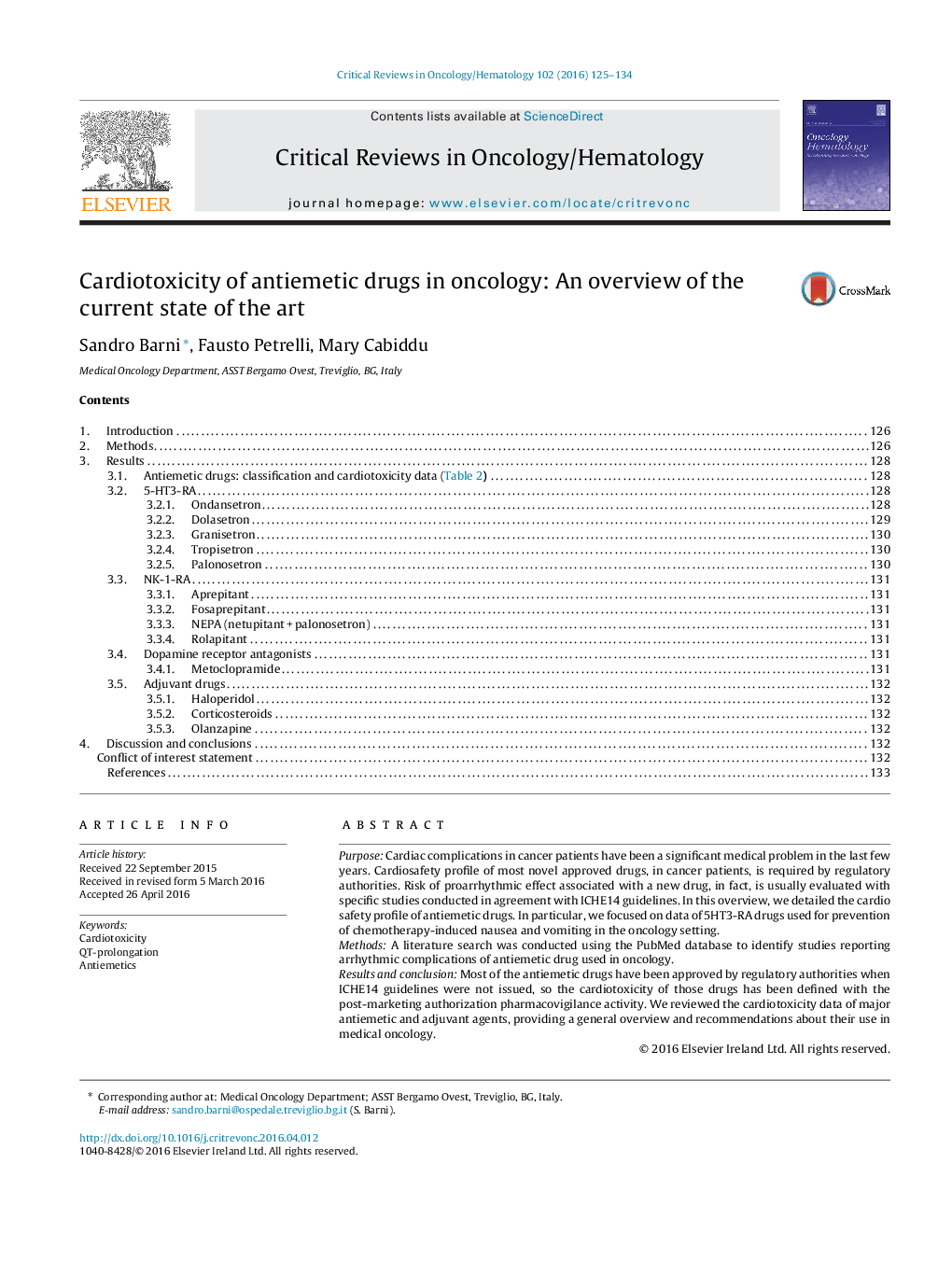| Article ID | Journal | Published Year | Pages | File Type |
|---|---|---|---|---|
| 3328540 | Critical Reviews in Oncology/Hematology | 2016 | 10 Pages |
•Prolongation of QT interval is a rare adverse event, potentially leading to torsades de pointes reported with some oncological drugs and with 5-HT3-RA antiemetics.•In particular effect on QT interval with ondansetron is dose and time depending and can be avoided by reducing the dose administered and prolonging the infusion duration.•Safety concerns about other antiemetics such as granisetron, dolasetron, and metoclopramide have been raised.•Oncologist and cardiologist should integrate their knowledge and cooperate in a collaborative fashion to monitor their patients and select high-risk patients who have to be spared QT prolonging drugs.
PurposeCardiac complications in cancer patients have been a significant medical problem in the last few years. Cardiosafety profile of most novel approved drugs, in cancer patients, is required by regulatory authorities. Risk of proarrhythmic effect associated with a new drug, in fact, is usually evaluated with specific studies conducted in agreement with ICHE14 guidelines. In this overview, we detailed the cardio safety profile of antiemetic drugs. In particular, we focused on data of 5HT3-RA drugs used for prevention of chemotherapy-induced nausea and vomiting in the oncology setting.MethodsA literature search was conducted using the PubMed database to identify studies reporting arrhythmic complications of antiemetic drug used in oncology.Results and conclusionMost of the antiemetic drugs have been approved by regulatory authorities when ICHE14 guidelines were not issued, so the cardiotoxicity of those drugs has been defined with the post-marketing authorization pharmacovigilance activity. We reviewed the cardiotoxicity data of major antiemetic and adjuvant agents, providing a general overview and recommendations about their use in medical oncology.
